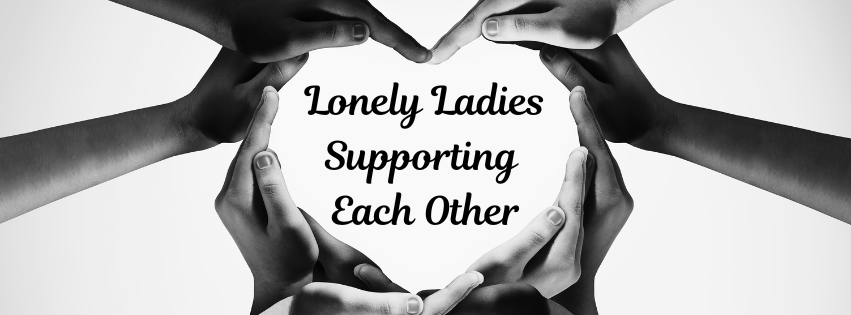
The Difference Between Being Lonely and Being Alone: Embracing the Journey After 50
As we get older, many of us experience moments of solitude, whether due to an empty nest, retirement, or simply the changing tides of life. But often, these moments of being alone can be confused with feelings of loneliness. While they may seem similar on the surface, the truth is that being alone and feeling lonely are two very different experiences.
So, what’s the real difference? And how can we navigate these emotions with grace and confidence as a woman over 50?
Understanding the Difference: Alone versus Lonely
At its core, being alone is a physical state—it’s simply the condition of not being in the company of others. It can be a peaceful moment of self-reflection, an opportunity to recharge, or just the quiet that comes with living solo.
On the other hand, loneliness is an emotional experience. It’s the feeling of being disconnected or isolated, even if you are surrounded by people. Loneliness can be a heavy, deep ache in your heart, a feeling that you are somehow missing out on meaningful connection.
For many women over 50, these feelings become more complex. Whether you're adjusting to life after children have moved out, dealing with the loss of a spouse, or even grappling with the challenges of aging, it's easy to slip into the mindset that being alone equals being lonely. But that doesn’t have to be the case. I’ve come to learn that it’s possible to embrace being alone without feeling isolated, and that’s an empowering realization.
Learning to Embrace Solitude
From my own experience, I remember when my children first left home. The house felt incredibly empty, and at first, I couldn’t shake the feeling of loneliness. There were days when I felt disconnected, like I was losing my sense of purpose. But over time, I started to appreciate the space I had created for myself. I could focus on my hobbies again, take long walks without any rush, and even read books I had been putting off for years.
There were moments when I questioned myself: “Am I just lonely?” But I soon realized that what I was feeling wasn’t loneliness—it was just space. It was the first time in decades that I had room to think, reflect, and grow, and it was a huge gift, even if it didn’t feel that way at first.
The key is recognizing that being alone doesn’t have to mean being lonely. It can be a chance to rediscover who you are, what you love, and what you want out of life. It can be an opportunity to nurture yourself, emotionally and physically.
Advice for Embracing Solitude Without the Loneliness
Shift Your Perspective:
Instead of viewing being alone as a negative experience, try to embrace it as a chance for self-care. This could be as simple as having a quiet morning with a cup of tea or as adventurous as learning a new skill.
Cultivate Hobbies:
Engage in activities that make you feel fulfilled. Whether it’s gardening, painting, writing, or learning a new language, hobbies can fill your time and give you a sense of purpose.
Reach Out for Support:
Just because you’re physically alone doesn’t mean you have to be emotionally isolated. Stay connected with family, friends, and communities that lift you up. Don’t be afraid to reach out if you're feeling lonely—sometimes just a phone call can work wonders.
Join Digital Platforms:
In today’s world, staying connected is easier than ever, especially with online platforms and groups specifically geared toward women over 50. Facebook Groups offer a great opportunity to connect with others who share similar interests or experiences. You can also explore virtual events, workshops, and classes—whether it’s a cooking class, a book club, or a wellness group, these communities can help you build connections.
Volunteer or Help Others:
Giving back to others can provide a deep sense of fulfilment and community. Volunteering, whether locally or online, allows you to connect with people and make a positive impact. Plus, the sense of purpose can greatly diminish feelings of loneliness.
Finding Joy in Being Alone
As women over 50, we are often juggling many things —family, work, friends, and responsibilities. But when the demands of life ease up, we might be faced with more time on our own. While it may take some adjustment,
learning to embrace time alone is an act of self-love. You don’t need to fill every moment with others to feel fulfilled. In fact, being alone can help you reconnect with yourself and your passions.
At the same time, loneliness can still creep in at times, and that’s okay too. We’re all human, and we all need connection. The good news is, there are so many ways to stay connected, whether in person or online, and many women over 50 are finding new ways to build relationships that are deeper and more meaningful than ever before.
Conclusion
The difference between being lonely and being alone is not always clear, but with a little reflection and some intentional steps, we can navigate both with grace. Remember that being alone doesn’t mean you’re abandoned or forgotten — it’s a time to care for yourself, explore new opportunities, and find joy in your own company. And if loneliness does strike, don’t hesitate to reach out. There’s always a community out there, ready to offer support, connection, and friendship, and you can start by joining our facebook group

Categories
Newsletter
Subscribe to the newsletter and stay in the loop! By joining, you acknowledge that you'll receive our newsletter and can opt-out anytime hassle-free.
SISTERS OF SOLACE ALL RIGHTS RESERVED Created with ©systeme.io 2025
Lorem ipsum dolor sit amet, consectetur adipisicing elit. Autem dolore, alias, numquam enim ab voluptate id quam harum ducimus cupiditate similique quisquam et deserunt, recusandae.
Lorem ipsum dolor sit amet, consectetur adipisicing elit. Autem dolore, alias, numquam enim ab voluptate id quam harum ducimus cupiditate similique quisquam et deserunt, recusandae.

